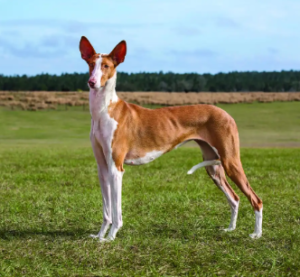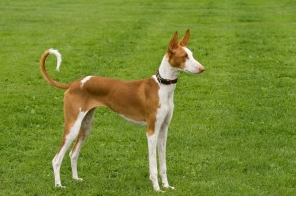Ibizan Hound Price: Check Before You Buy! What You Need To Know Before Buying an Ibizan Hound

Ibizan Hound
What is the average price of an Ibizan Hound?
The Ibizan Hound is a rare breed of dog that originated in Spain. It’s known for its long, wavy coat and energetic personality. The breed has been around since the 16th century, but it wasn’t recognized by the American Kennel Club until 1982.
The Ibizan Hound has become increasingly popular in recent years due to its striking appearance and sweet temperament–but what does it cost to own one? In this guide, we’ll explore all of your costs associated with owning an Ibizan Hound so you know exactly what to expect when bringing home this adorable pup!
Here are some different types of Ibizan Hounds and their average prices along with their typical appearance and common health issues:
| Type of Ibizan Hound | Appearance | Common Health Issues | Price Range |
|---|---|---|---|
Smooth Ibizan Hound |
Lean, sleek, short coat; typically red and white or solid red |
Ear infections, hip dysplasia, bloat |
$800 – $1,500 |
Wire Ibizan Hound |
Harsh, wiry coat; various colors including red, white, and multi-color |
Skin allergies, hip dysplasia, retinal atrophy |
$1,000 – $2,500 |
Podenco Ibicenco |
Similar to the smooth Ibizan Hound with a slender, athletic build |
Ear infections, hip dysplasia, autoimmune disorders |
$900 – $1,800 |
Factors that Influence the Price of an Ibizan Hound
The price of an Ibizan Hound is influenced by several factors, including:
-
Reputation of the breeder. If you’re buying from a reputable breeder who has been around for a while and has good reviews, you can expect to pay more than if you were buying from someone new or without much experience.
-
Bloodline. If your puppy comes from champion parents and has won multiple awards at dog shows, his value will be higher than that of one whose parents never competed in shows at all. The same goes for whether or not both parents are registered with AKC (American Kennel Club). A lot of breeders will only sell puppies with papers so that buyers know exactly what they’re getting when they buy their pet–and this means higher prices as well!
If you are looking for Professional Dog Training please click here: Dog Training

Ibizan Hound
How to Find a Reputable Ibizan Hound Breeder
When you’re ready to purchase an Ibizan Hound, it’s important to do your research. A reputable breeder will be able to provide you with health records and information about the parents of your puppy. You should also visit in person if possible–this will give you a better idea of how well the dogs are cared for and whether they’re happy in their environment.
If possible, avoid buying from pet stores or puppy mills (where profit is more important than quality).
If you are looking for Professional Dog Training please click here: Dog Training
Ongoing Expenses of Owning an Ibizan Hound
-
Food
Ibizan hounds are not an inexpensive breed to feed. They require a high-quality, grain-free diet that costs about $60 per month. If you want to give your Ibizan Hound something special from time to time, this can add up quickly as well. -
Grooming
Grooming is another ongoing cost associated with owning an Ibizan Hound. Their coats need brushing every week or two, which can get expensive when you factor in things like shampooing and drying time (about $15 per month). You’ll also need to trim their nails regularly–about once every 4 weeks or so–and clean their ears once or twice per month ($5-$10).
If you would like to boost your dog’s health, try this: Dog Probiotic

Ibizan Hound
Common Misconceptions and Challenges of an Ibizan Hound
-
High energy level: Ibizan Hounds are high-energy dogs, and if you don’t give them enough exercise, they can become destructive.
-
Potential health issues: In addition to the usual concerns with large breeds (hip dysplasia, bloat), Ibizan Hounds have been known to develop eye problems that require surgery.
Key Points Summary
-
Consider all costs and responsibilities.
-
Ibizan hounds are a commitment of 10-14 years.
-
They are compatible with children and other pets, but may not be suitable for homes with small children or other small pets (like cats).
Free Reports
- Cockatiel Sounds: What Type of Sounds Do Cockatiels Make?
- Cane Corso Lab Mix: What You Need To Know Before Adopting Your New Cane Corso Lab Mix
- Belgian Malinois Grooming: How to Properly Care For Your Belgian Malinois
- Hamster Vomiting: What You Need To Do When Your Hamster is Vomiting
- Manchester Terrier Price: What You Should Before Adopting Your Manchester Terrier
- Boerboel Life Span: How Long Do Boerboel Dogs Usually Live?
- Canaan Dog Price: Everything You Should Know About Canaan Dogs Before Adopting
- Do Cane Corso Shed: How Much Cane Corsos Shed and How to Prevent Shedding
- Cane Corso German Shepherd Mix: Everything They Don’t Tell You About This Unique Mix
- Cane Corso Doberman Mix: Check Before You Buy! What They Don’t Tell You About Cane Corso Doberman Mixes
- Brindle Cane Corso: What You Need to Know Before Adopting
- Cockatiel Eye Problems: What to Do When Your Cockatiel Has an Eye Infection
- Top 25 Sun Conure Names: How to Name a Sun Conure, Care Tips and Tricks
- Friesian Horse Price: Everything You Need to Know Before You Buy a Friesian Horse
- Friesian Colors: The Uniqueness of Every Friesian Horse Color, Price and Care Tips